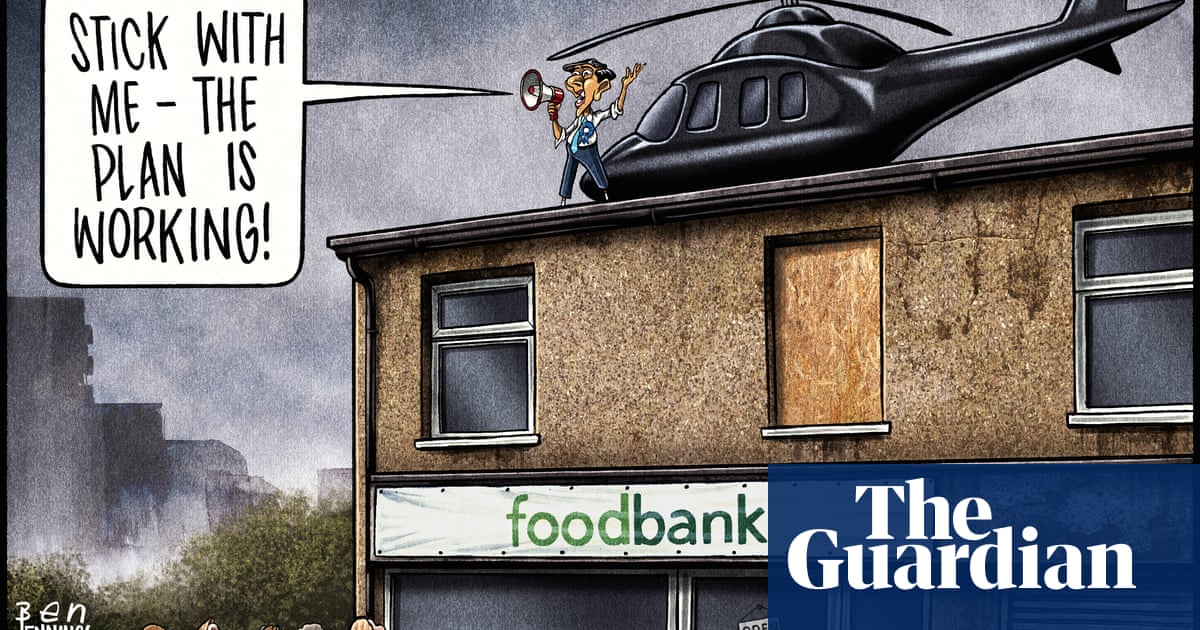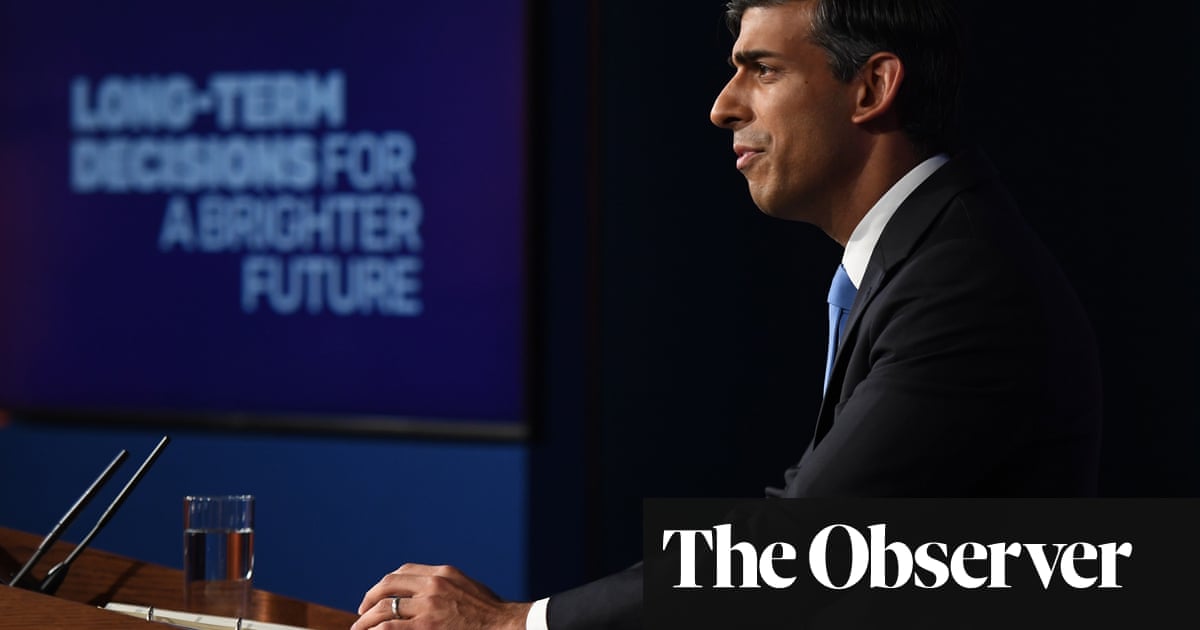
Three miles from Rishi Sunak’s £1.5m manor house in the Yorkshire hamlet of Kirby Sigston, the telephone rings at the local food bank. It is a mother of four teenagers, aged 13 to 18. Little more than a week into the school holidays, they have run out of food.
Alison Grainger, the coordinator of Hambleton Foodshare, arranges for the family to be sent a parcel containing three meals for three days. The food bank is open only for emergencies on weekends, so the supplies will have to stretch to at least five days.
It feels, says Grainger, as if the charity is only “putting a plaster on a massive wound”.
“There’s nothing. There’s no safety net,” she said. “People just drop through the wee holes and everything seems to be difficult for people to navigate.”
In one of the most affluent parts of the region, in a constituency represented by the man campaigning to be prime minister – often described as the wealthiest MP in parliament – a growing number of people are struggling to cope with the rising cost of living.
Hambleton Foodshare issued 397 parcels in May – its busiest ever month and nearly double the number of May last year. It gave out more emergency supplies in April, May and June this year – 1,055 – than it did in its whole first year of operation in 2012. More than half of the 1,970 food parcels distributed in the first six months of this year have been for children.
Sunak, who has represented the constituency of Richmond, in North Yorkshire, since 2015, became the first frontline politician to make the Sunday Times rich list this year, with an estimated fortune of £730m with his wife, Akshata Murty.
The couple bought a Grade II-listed manor house for £1.5m in Kirby Sigston the year he was elected. Last year, they were granted planning permission for a big leisure area to be built in the garden, complete with a 20-metre swimming pool, a tennis court and a gym.
Advertisement
The Sunaks’ property is surrounded by hundreds of acres of rolling fields and farmland in one of the most highly sought-after places to live. House prices in Richmondshire rose by 29% to an average of just over £250,000 last year, the largest increase in Britain. Its unemployment rate is less than half the national average.
Beyond Northallerton’s well-heeled high street, however, many people in work are increasingly reliant on charity. “Before the pandemic, the reason people often came was because of [welfare] sanctions,” said Michael Webster, the chair of trustees of Hambleton Foodshare. “That’s very small now. Now it’s just people who haven’t got enough money.”
A growing number of people say they are turning off their freezer or cooker to save on electricity, Grainger said. More people are relying on food parcels to be delivered to them because they cannot afford the bus fare or fuel to drive.
Sunak’s decision to take £20 a week off universal credit payments last October was “so disappointing because it was just giving people maybe a bit of dignity to be able to afford the odd thing”, said Grainger.
But it goes beyond the former chancellor, to an “uncaring” welfare system and a political class who “don’t understand the reality of what it’s actually like. Even we don’t understand it, but we can see the immediacy of it.”












